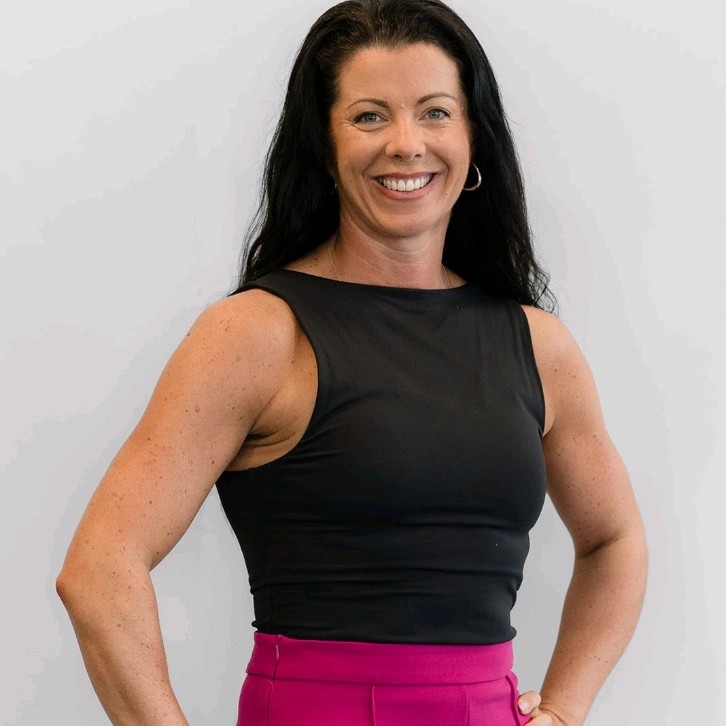
Electra Japonas is the Founder and CEO of a TLB, contract specialist company that partners with customers to provide comprehensive contract review support and takes contract functionality to new heights through the transformative force of legal design and operations. In March 2021, Electra also co-founded oneNDA, a game-changing open-source, collaborative initiative that has witnessed extraordinary support. With over 1000 companies formally adopting oneNDA as their go-to Non-Disclosure Agreement (NDA) and more than 50,000 downloads, its impact is undeniable.
Before establishing TLB, Electra honed her skills and knowledge over a decade in prominent organisations, including the European Space Agency, Disney, BAT, and EY, where she played pivotal roles in commercial legal and data protection. It was during this time that she recognized a crucial void in the market—an opportunity to create a legal company that embraced a holistic approach to support, transcending the confines of traditional law and contracts in particular. TLB’s vision is to redefine the way organisations perceive, utilise and glean value from their contracts process by infusing it with innovation, strategy, technology and a deep understanding of user experience.
oneNDA is a crowd-sourced, open-source non-disclosure agreement that has been created by the legal community. And it’s entirely free to use. oneNDA believes that if we all started from the same NDA template, we would save enormous amounts of time, money and effort. No more battle of the forms and no more negotiating terms that are not market standard or add little to no value. Businesses would be able to get to the commercial deal quicker and lawyers would have more time to spend time on the more strategic work.Through her innovative thinking, unwavering determination, and commitment to a more privacy-conscious future, Electra Japonas continues to lead oneNDA on its mission to empower individuals and foster a safer and more secure and collaborative digital landscape.
I sat down with Electra to talk about a mantra of hers, ‘Innovation Through Collaboration.’ This is something that is at the core of oneNDA, and is something Electra truly believes is the best way to push the legal profession into the future, and to ensure its survival.
- How do you define “innovation through collaboration” within the legal profession, and why is it important in today’s rapidly evolving technological landscape?
– ‘Innovation through collaboration’ is a term we used heavily during the oneNDA initiative. In fact, the Financial Times awarded us for just that – Innovation Through Collaboration. What we created with oneNDA was a crowd-sourced project with a load of lawyers from all over the world who wanted to create something that was going to benefit them in their profession and benefit their businesses as a result. The way that I see the legal profession is that we are still, unfortunately, very siloed. You get lawyers working in law firms that don’t talk to other law firms and you get in-house lawyers that don’t necessarily talk to the rest of the business. I think what happens as a result is that it’s really difficult for you to get different perspectives, it’s very difficult for you to leverage things that other people have come up with which might be better ways of working. As a result we are not collaborating as much as we could. We are stifling our profession to an extent. If we look at the software industry as an example of how they have always collaborated from the outset. I appreciate it’s a very different profession, but when software developers realised software was becoming a vital part of working life, and they started coming across all these difficult challenges, they decided that to solve those challenges they need to work together as a community.
So, you’ll get an Amazon developer talking to a Google developer because 1) they don’t really care about the competitive advantages over the other, or vice versa, they just want to solve the problem and there is this focus on the greater good of how to solve these difficult things that other people haven’t been able to solve. I think lawyers take a different approach, in fact the opposite, we hoard knowledge and we hoard information because we are capitalising on it. In order for us to really see progress in our profession we have to open the barriers and we have to collaborate. oneNDA is a great example of how we can create something really transformative that can absolutely change the way we do something as simple but as time consuming as NDAs because we all collaborated for that greater good.
- Can you share an example of how collaboration among legal professionals and technology experts has resulted in innovative solutions for complex legal challenges?
– I’m going to take oneNDA as the perfect example for the legal industry lately, because oneNDA was an amalgamation of the legal community at large. We had people from law firms in house lawyers, technology providers, and they all came together to create oneNDA. When oneNDA was created as a document the CLM providers took it and created seamless digital automations with oneNDA. Together there was this really transformative piece that occurred, which is ‘we are all going to collaborate to create this template that we all agree is good enough’ and then the technology providers came along, took it, and they went and digitised it so we can seamlessly agree to NDAs. So, not only have you standardised the way that you do it but we can also help you digitise it to really streamline the whole process. Another great example is ISDA, who are pulling together a team to figure out what it is that people are agreeing to over and above what’s in the standard agreement and trying to codify it so people are selecting options rather than drafting from scratch, because drafting from scratch is really difficult to keep consistent. So, that is what ISDA is doing and digitising that through the platform that they are building so that people can select it and derive data that they use the most. We are seeing this marriage of collaboration and technology as a layer on top of that collaboration to really supercharge what that collaboration did.
- How can law firms and legal departments encourage a culture of collaboration and promote the adoption of innovative technologies among their legal teams?
– The first thing they need to do is work on people’s mindsets. In the legal industry we are very used to being told, from when we are first trained as lawyers, that you can’t be wrong, you have to know all the answers, and that if you get it wrong you are going to get sued. You are going to lose your job, and damage your reputation, and that is not conducive to a culture of collaboration and innovation. It encourages siloed behaviour, and what happens when you’re not comfortable asking questions is that you don’t get those perspectives that you need in order to enrich your own perception. So, we need to work on people’s mindsets and let them know it’s okay for them to mess up, you don’t have to get everything right 100% of the time, and to fail only means you get to try again. I think that is the number one barrier to innovation in the legal industry; the idea that we need to know everything, and you have to be right first time around.
- Have you observed any specific challenges or barriers to collaboration when it comes to integrating technology into the legal profession, and how can these obstacles be overcome?
– Legal teams often feel they don’t have the right to ask for more money to spend on tech. Lawyers tend to struggle to build a business case when it comes to asking for tech they want to integrate into their teams, but when they have overcome that barrier, which is hard, they are then met with an overwhelming number of options. Having to choose tech that meets the needs of a team is a hard thing to decipher. From here there needs to be a process of identifying the needs of the team, prioritising those needs, buying the suitable tech, integrating the technology, monitoring its impact and if it is being fully utilised. Gathering this data is vital for a legal team to be able to select the right product that will be used in its entirety and be worth the investment. Identifying a need for technology is the first thing to do, but challenging yourself on whether you actually need that technology is the second thing you need to do. If you find you do need technology, what are the requirements the new tech needs to meet, and what you want it to achieve. Another barrier can be training. Not necessarily the practical side of training, but encourage people to utilise what is available, and make sure they are in the mindset of ‘this is going to be helpful and impactful.’ Getting people to actively work with and confidently collaborate with technology is going to make sure that the investment is worthwhile and has a positive impact.
- Are there any specific technologies or tools that you believe have been particularly instrumental in facilitating collaboration and innovation within the legal profession?
– I think Linkedin is the most prolific tool when it comes to collaboration as people are using it as a platform to get together. You can see this happening as online communities start to form. A good example of this is the Legal Geek Community. You see these communities sharing information, ideas, and opinions and by doing so they are continually growing their reach. I use Linkedin on a daily basis, and I use it to share my thoughts and to gauge a response so I can verify my thinking as well as making sure that it is aligned with the rest of the collective’s thinking. When we were building oneNDA, Linkedin was the platform that drove the collaborative process. Linkedin is a great way of showing those in the legal profession that collaborating and sharing knowledge leads to expansion and growth, and serves to uplift the community for the greater good.
- Looking ahead, what do you envision as the future of innovation through collaboration in the legal profession, and what advice would you give to aspiring lawyers in this regard?
– I think that once the majority of the workforce is Millennials and Gen Z the way that communication is done will be different. Millennials and Gen Z are much more used to utilising tools that allow instant communication and fluidity. How we manage things on our personal phones and communicate in our personal lives, doesn’t feel cohesive when we turn up to work and are then expected to communicate in a way that doesn’t feel as natural to us and doesn’t seem to be as efficient as we are used to. As the next generations become the majority of the workforce, I believe they will bring their way of communicating with them. I also feel the Millennials and Gen Z are much more confident in using tools such as Linkedin to ask questions and collaborate and as such the digital world will become solidified in how legal professions work.




